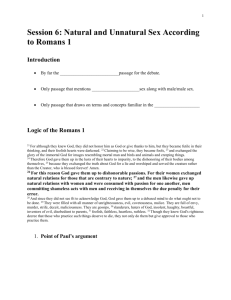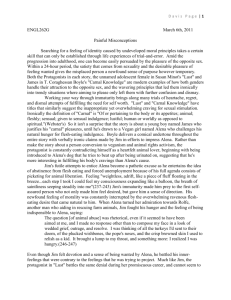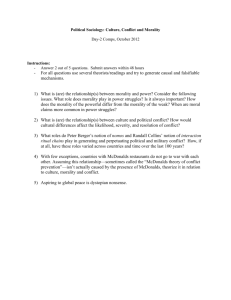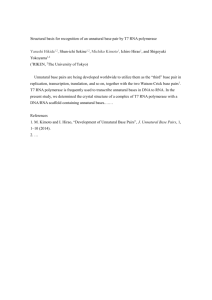Summary of High Court Decision in Kanane v. State
advertisement
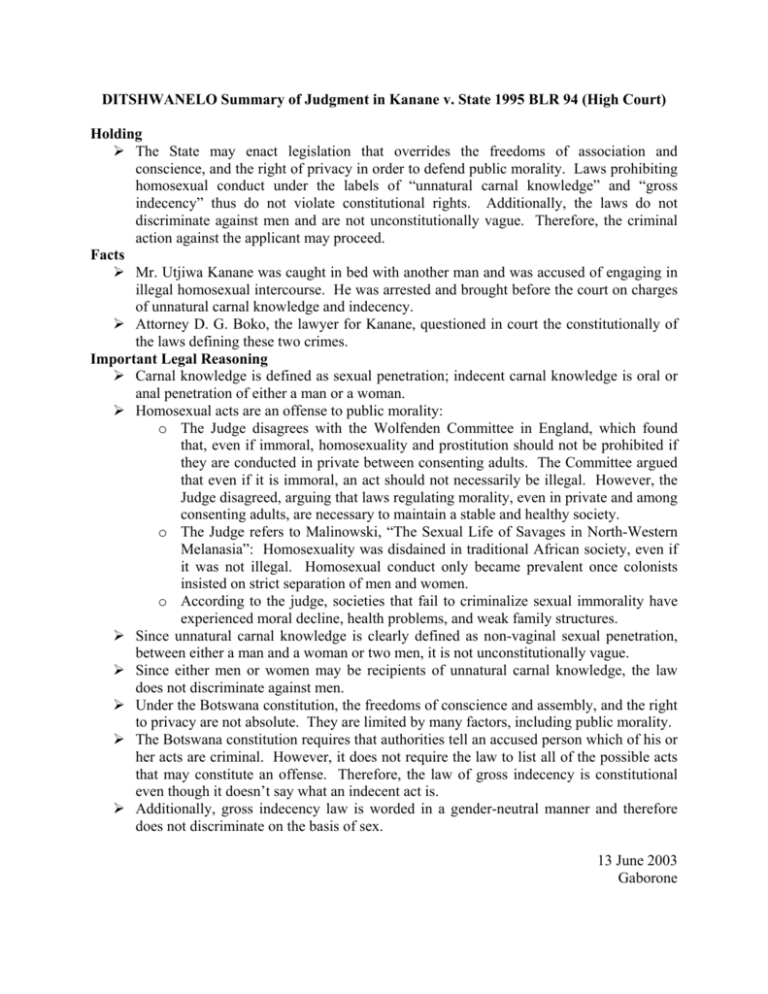
DITSHWANELO Summary of Judgment in Kanane v. State 1995 BLR 94 (High Court) Holding The State may enact legislation that overrides the freedoms of association and conscience, and the right of privacy in order to defend public morality. Laws prohibiting homosexual conduct under the labels of “unnatural carnal knowledge” and “gross indecency” thus do not violate constitutional rights. Additionally, the laws do not discriminate against men and are not unconstitutionally vague. Therefore, the criminal action against the applicant may proceed. Facts Mr. Utjiwa Kanane was caught in bed with another man and was accused of engaging in illegal homosexual intercourse. He was arrested and brought before the court on charges of unnatural carnal knowledge and indecency. Attorney D. G. Boko, the lawyer for Kanane, questioned in court the constitutionally of the laws defining these two crimes. Important Legal Reasoning Carnal knowledge is defined as sexual penetration; indecent carnal knowledge is oral or anal penetration of either a man or a woman. Homosexual acts are an offense to public morality: o The Judge disagrees with the Wolfenden Committee in England, which found that, even if immoral, homosexuality and prostitution should not be prohibited if they are conducted in private between consenting adults. The Committee argued that even if it is immoral, an act should not necessarily be illegal. However, the Judge disagreed, arguing that laws regulating morality, even in private and among consenting adults, are necessary to maintain a stable and healthy society. o The Judge refers to Malinowski, “The Sexual Life of Savages in North-Western Melanasia”: Homosexuality was disdained in traditional African society, even if it was not illegal. Homosexual conduct only became prevalent once colonists insisted on strict separation of men and women. o According to the judge, societies that fail to criminalize sexual immorality have experienced moral decline, health problems, and weak family structures. Since unnatural carnal knowledge is clearly defined as non-vaginal sexual penetration, between either a man and a woman or two men, it is not unconstitutionally vague. Since either men or women may be recipients of unnatural carnal knowledge, the law does not discriminate against men. Under the Botswana constitution, the freedoms of conscience and assembly, and the right to privacy are not absolute. They are limited by many factors, including public morality. The Botswana constitution requires that authorities tell an accused person which of his or her acts are criminal. However, it does not require the law to list all of the possible acts that may constitute an offense. Therefore, the law of gross indecency is constitutional even though it doesn’t say what an indecent act is. Additionally, gross indecency law is worded in a gender-neutral manner and therefore does not discriminate on the basis of sex. 13 June 2003 Gaborone
